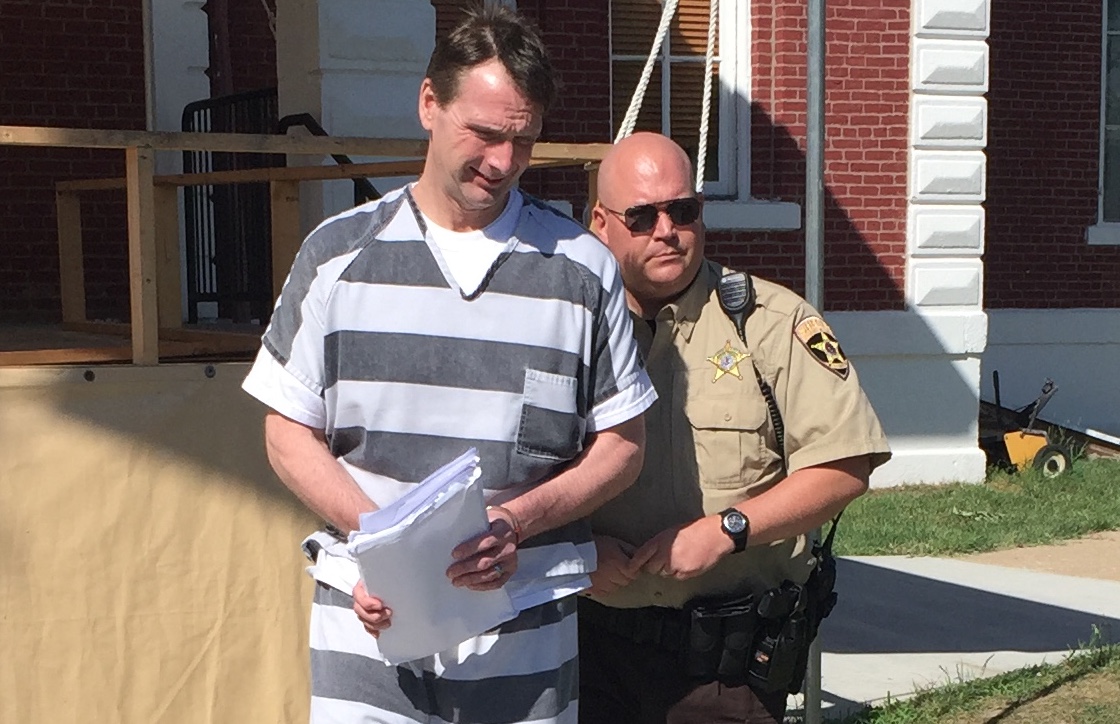Settlement reached in Lovelace civil suit against Quincy, Adams County; details not yet public

SPRINGFIELD, Ill. — A settlement has been reached in the 2017 civil lawsuit filed by Curtis Lovelace and other Lovelace family members against several members of the Quincy Police Department, Adams County State’s Attorney Gary Farha, former Adams County Coroner James Keller, the city of Quincy and Adams County.
Details of the settlement or financial obligations, however, have not yet been made public.
Information on the PACER (Public Access To Court Electronic Records) website shows the settlement was reached June 30 in U.S. District Court for the Central District of Illinois. Proceedings were held that day by video before Magistrate Judge Jonathan E. Hawley, who served as a mediator. Participating in the meeting were:
- Lovelace and his attorney, Jonathan Loevy of the firm Loevy and Loevy in Chicago, who also represented Lovelace’s sons, Logan Lovelace and Lincoln Lovelace, and Lovelace’s wife, Christine Lovelace;
- Attorney James Hansen from the firm of Schmiedeskamp, Robertson, Neu and Mitchell LLP in Quincy, representing Keller, Farha and Adams County;
- Attorney Thomas G. DiCianni from the firm of Ancel, Glink, Diamond, Bush, DiCianni and Krafthefer in Chicago, representing former police chief Rob Copley, Det. Adam Gibson, Sgt. John Summers and Lt. Dina Dreyer of the Quincy Police Department.
After the settlement was reached, all parties agreed to file a stipulation to dismiss by Aug. 1. All deadlines and hearings previously set were vacated.
Lovelace was tried twice on charges alleging he killed his first wife, Cory, on Feb. 14, 2006. A mistrial was declared in the first trial on Feb. 5, 2016, after an Adams County jury failed to reach a verdict. A second trial was held in Sangamon County, and a jury found Lovelace not guilty of first-degree murder on March 10, 2017.
Lovelace’s lawsuit, filed May 8, 2017, had claims alleging due process violations, malicious prosecution and unlawful detention. It claimed:
- Farha and Keller deprived Lovelace of his constitutional right to due process and a fair trial by withholding and suppressing evidence and fabricating evidence against him;
- Farha and Keller reached an agreement to deprive Lovelace of his constitutional rights;
- Farha and Keller accused Lovelace of criminal activity and exerted influence to initiate, continue and perpetuate judicial proceedings without probable cause;
- Lovelace was deliberately and intentionally framed for a crime of which he was innocent;
- Intentional infliction of emotional distress;
- Each of the police officers reached an agreement to deprive Lovelace’s children of their constitutional rights when they were illegally questioned by police without a parent present;
- False imprisonment of each of the Lovelace children;
- False evidence was used against Lovelace, and the defendants engaged in extreme and outrageous conduct in maliciously prosecuting him.
A motion for summary judgement — a request of the court to decide all or part of a lawsuit without going to trial because there’s no dispute about the key facts — was submitted by the Quincy and Adams County defendants.
In a summary written Oct. 13, 2020, U.S. District Judge Sue Myerscough wrote that the defendants were not entitled to qualified immunity — which protects government officials, like law enforcement, from being held personally liable for things that happen on the job, unless they violate a clearly established law. She also granted the motions for each defendant on the count for intentional infliction of emotional distress. All other claims were denied, and the case was ordered to continue.
Hansen and DiCianni appealed Myerscough’s ruling to the Seventh Circuit Court of Appeals. Judges Michael S. Kanne, Diane P. Wood and David F. Hamilton heard arguments on Nov. 30, 2021, and they ruled on Dec. 22, 2021, to reverse Myerscough’s denial of qualified immunity.
A status conference with Hawley mediating was held May 6. Attorneys discussed the possibility of Magistrate Judge Karen McNaught trying the case beginning on Sept. 6, 2023. However, another settlement conference with Hawley was set for May 23, followed by the final settlement conference on June 30.
The suit did not indicate what the Lovelaces were seeking, other than “compensatory damages and attorneys’ fees and costs against each defendant, punitive damages against each of the individual defendants and any other relief the court deems just and appropriate.” Illinois law says public entities must pay any tort judgment for compensatory damages for which employees are liable.
Miss Clipping Out Stories to Save for Later?
Click the Purchase Story button below to order a print of this story. We will print it for you on matte photo paper to keep forever.

